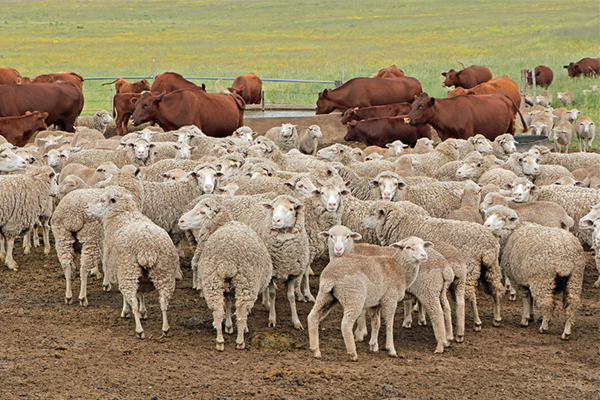The world trading system is in a state of flux after Trump’s tariff announcement last week upended well established trade flows that have been in place since the end of World War 2.

This week there were more significant changes.
US temporarily suspends new tariff levels but lifts China’s tariff to 125 per cent (pc)
Last night Trump said he would temporarily lower tariffs he had just imposed for three months to allow time for negotiations with countries that have sought to reduce them, while further ramping up pressure on China (number two provider of US imports) saying he would raise their tariffs to 125 pc from the 104 pc level that took effect at midnight.
Trump's reversal on the country-specific tariffs is not absolute. A 10 pc blanket duty on almost all US imports will remain in effect. Which means the tariffs on Australian beef and sheepmeat exports will remain subject to a 10 pc tariff.
After Trump’s announcement, oil prices which had earlier fallen to a four-year low below $60/bbl - on recession fears due to escalating trade issues - bounced 4 pc while the US stock market index S&P 500 shot 9.5 pc higher.
Trade flows are rapidly shifting
Damage has already been done. Asian buyers are reducing purchases of US agricultural goods as planned fees on China-linked vessels and sweeping tariffs dampen appetite for US goods. Trade flows are shifting dramatically especially to China as US proves an erratic trading partner.
The Australian canola trade is abuzz with talk that the Chinese market may reopen soon. China withdrew from buying Australian canola in 2020.
US corn is being replaced in EU feed grain markets and Australia is picking up US sorghum business in China.
Australian beef mostly unaffected
In terms of beef, imported Australian 90CL prices into the US have jumped nearly $1.50Ac/kg about the size of the tariff. Meaning US importers are absorbing the tariff with Australian export returns appearing to be relatively unaffected, the impact on our cattle prices so far appears to be negligible.
Steiner reports that, China is the third-largest market for US beef by volume, and US beef now faces a 56 pc tariff in China (12 pc + 10 pc in February + 34 pc in April). Sales to China have already ground to a halt, as US plant export registrations lapsed and have yet to be renewed. Even if relisted, the elevated tariffs will severely limit trade.
In 2024, China purchased just over 157,000t of fresh/frozen beef from the US, with about 100,000t being boneless cuts (chucks, rounds, loins, brisket, etc.). Some of these cuts may now be redirected to the domestic market, and—if domestic demand weakens—could end up in the grinder. Perhaps this will be seen as a win for those looking to reduce imported beef, but the trade-off is the premium those cuts would have earned in export channels.
Talk of new Australian plant registrations to China but no signs yet of increased Chinese buying
There is talk that China are interested in registering more Australian export processing plants and, although there has been no noticeable pick up in inquiry from China yet, Australia is well placed to replace any redirected US beef in China.
Last week, Steiner estimated that the 2024 US beef demand index was the highest since 2000. However, the current China/US trade war has increased the chances of the US economy falling into recession (JP Morgan estimating a 60 pc chance) with the risk of contagion to other major economies increasing.
High value Australian beef and lamb cuts appear to be at most at risk from the tariffs 10 pc they appear manageable with the bigger risk maybe a downturn in global growth.
The information contained in this article is given for the purpose of providing general information only, and while Elders has exercised reasonable care, skill and diligence in its preparation, many factors (including environmental and seasonal) can impact its accuracy and currency. Accordingly, the information should not be relied upon under any circumstances and Elders assumes no liability for any loss consequently suffered. If you would like to speak to someone for tailored advice relating to any of the matters referred to in this article, please contact Elders.